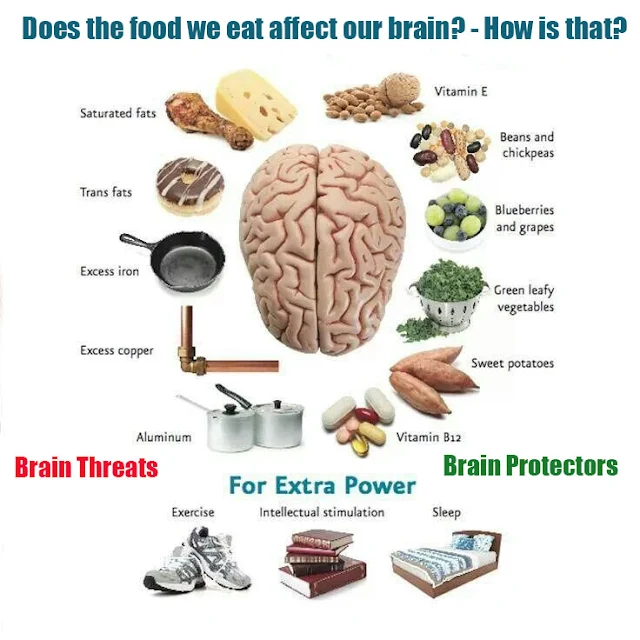Does the food we eat affect our brain?
How is that?
The Impact of Food on Your Brain If the moisture were removed from your brain and its nutritional content were broken down, what would it resemble?
Most of the weight of your dehydrated brain would consist of fats, also known as lipids.
In addition to fats, the remaining brain matter would contain proteins, amino acids, traces of micronutrients, and glucose.
While the brain is more than just the sum of its nutritional parts, each component has a distinct impact on its functioning, development, mood, and energy.
Post-lunch apathy or late-night alertness could simply be the effects of food on your brain.
The standout fats in your brain are omegas 3 and 6, which must be obtained from our diets and have been linked to preventing degenerative brain conditions.
Meanwhile, the consumption of trans and saturated fats may compromise brain health.
Proteins and amino acids, the building block nutrients of growth and development, influence how we feel and behave.
They contain the precursors to neurotransmitters, affecting mood, sleep, attentiveness, and weight.
The complex combinations of compounds in food can stimulate brain cells to release mood-altering norepinephrine, dopamine, and serotonin.
A diet with a variety of foods helps maintain a balanced combination of brain messengers, preventing mood imbalances.
Our brains also benefit from a steady supply of micronutrients.
Antioxidants in fruits and vegetables strengthen the brain to fight off free radicals that destroy brain cells, while vitamins B6, B12, and folic acid are essential to prevent brain disease and mental decline.
Trace amounts of minerals like iron, copper, zinc, and sodium are fundamental to brain health and early cognitive development.
The brain requires a significant amount of fuel to efficiently transform and synthesize valuable nutrients, with up to 20% of our energy resources being used by the brain.
Carbohydrates provide most of this energy, with glucose being the primary source.
The type of carbohydrates we consume affects our brains differently.
Foods with a high glycemic index, like white bread, cause a rapid release of glucose into the blood, resulting in a subsequent drop that affects attention span and mood.
On the other hand, oats, grains, and legumes lead to a slower glucose release, enabling a steadier level of attentiveness.
Opting for a varied diet of nutrient-rich foods is crucial for sustained brain power.
Your choices in what you eat have a direct and long-lasting effect on the most powerful organ in your body.


Comments
Post a Comment